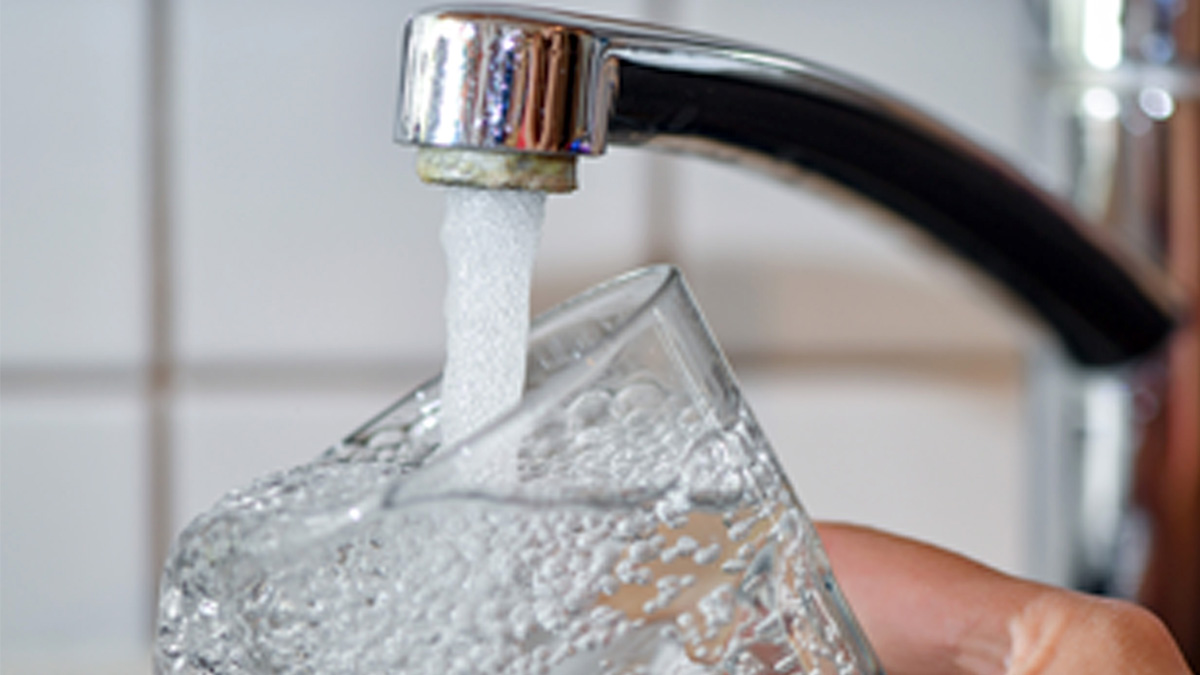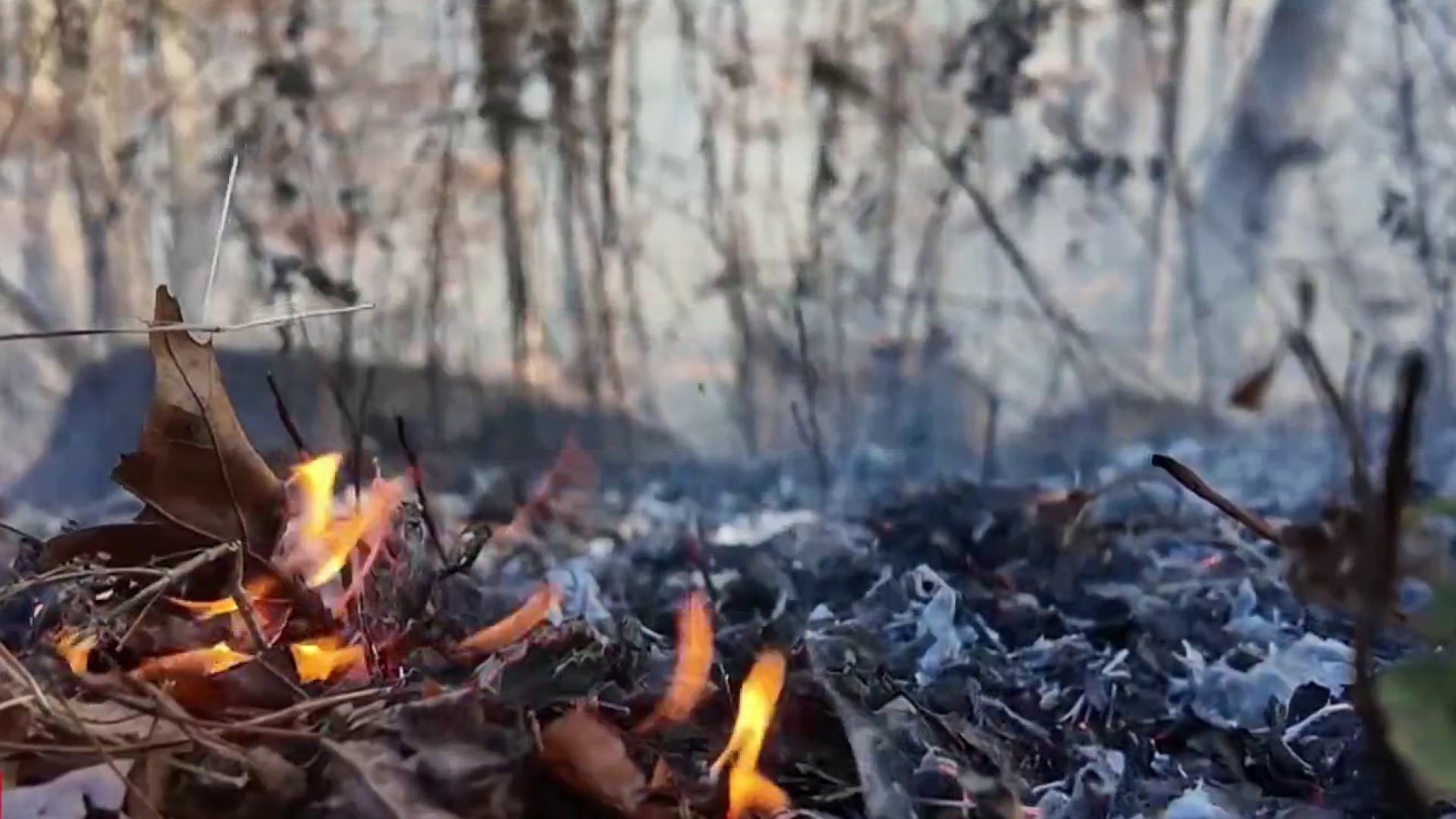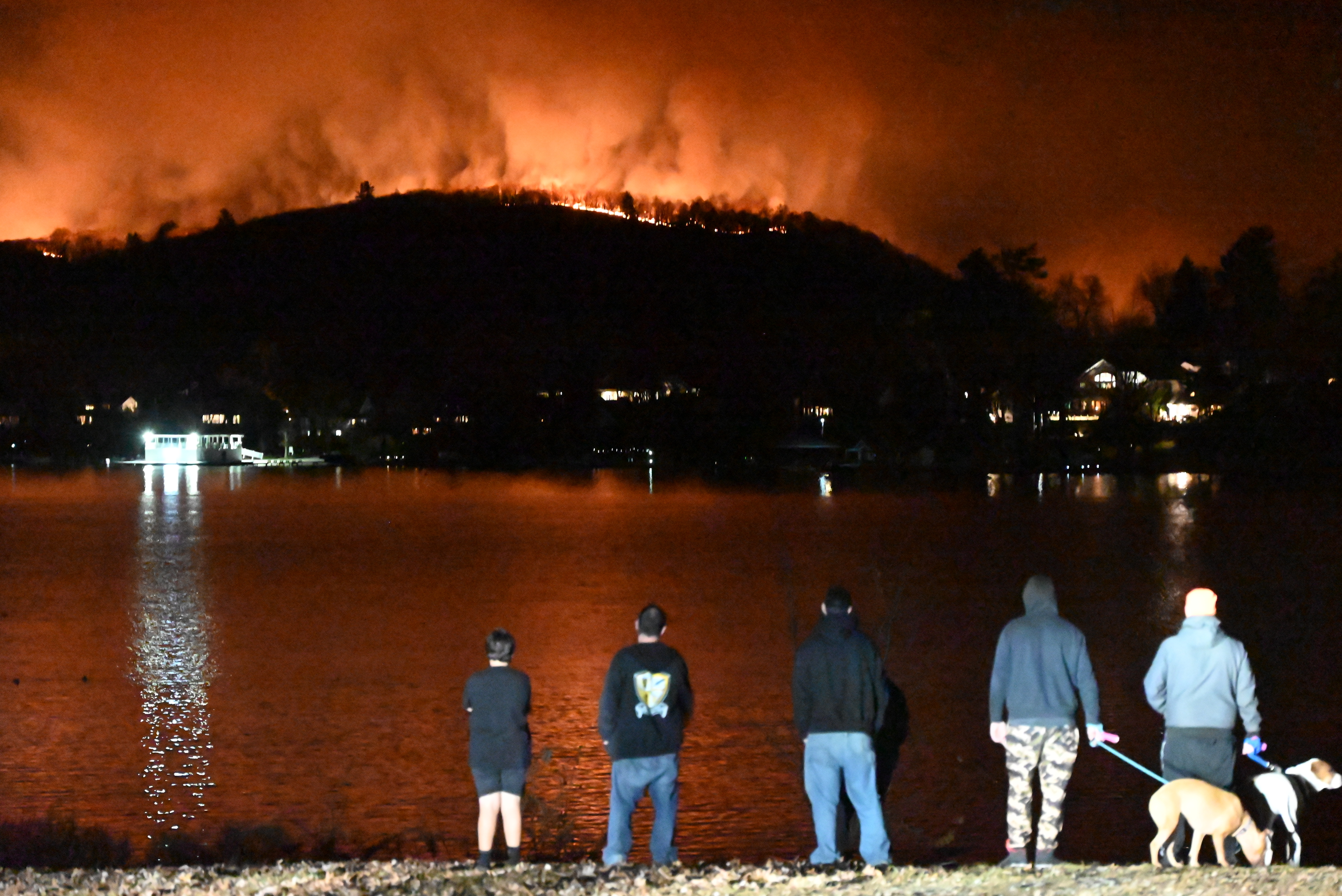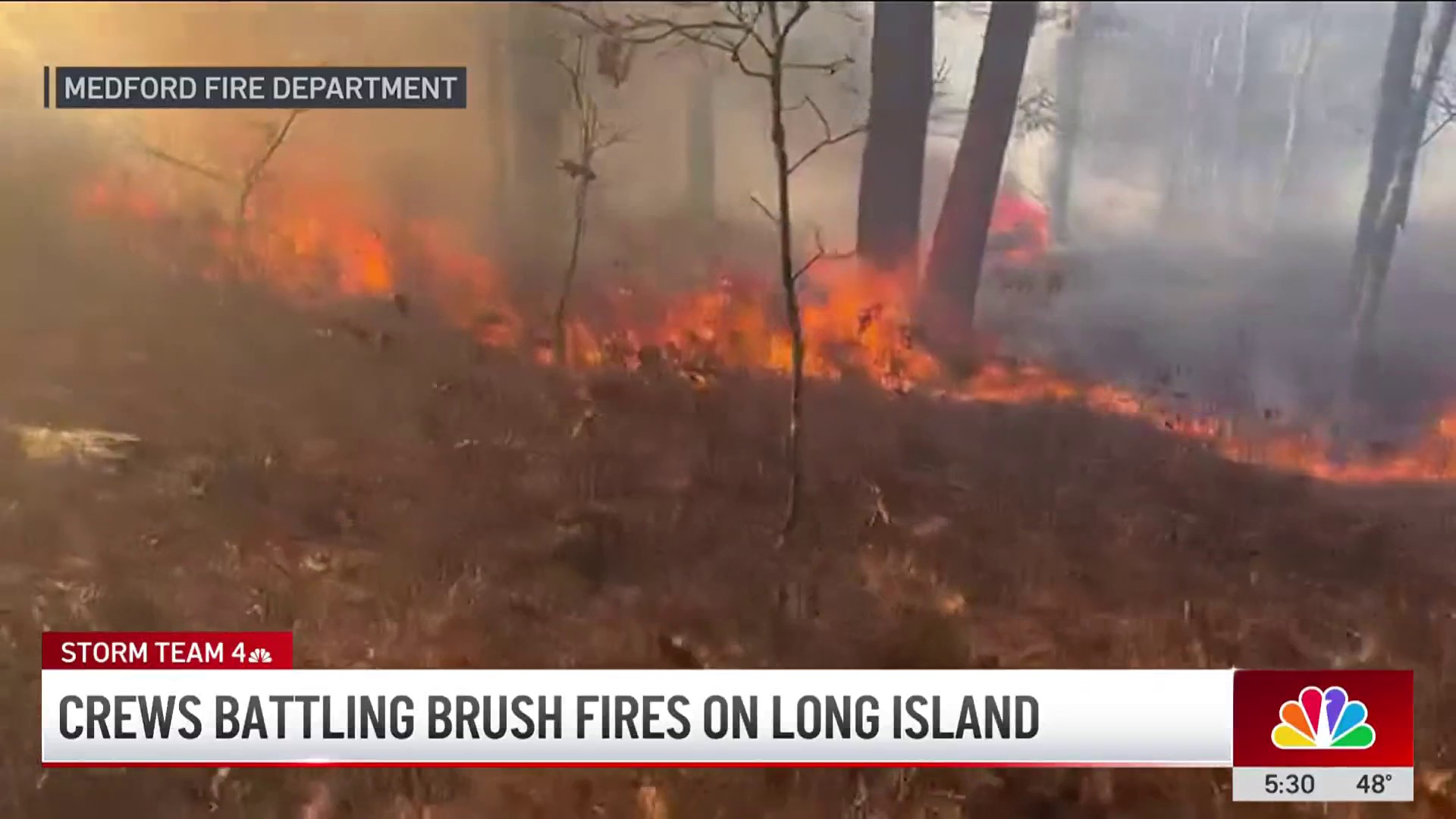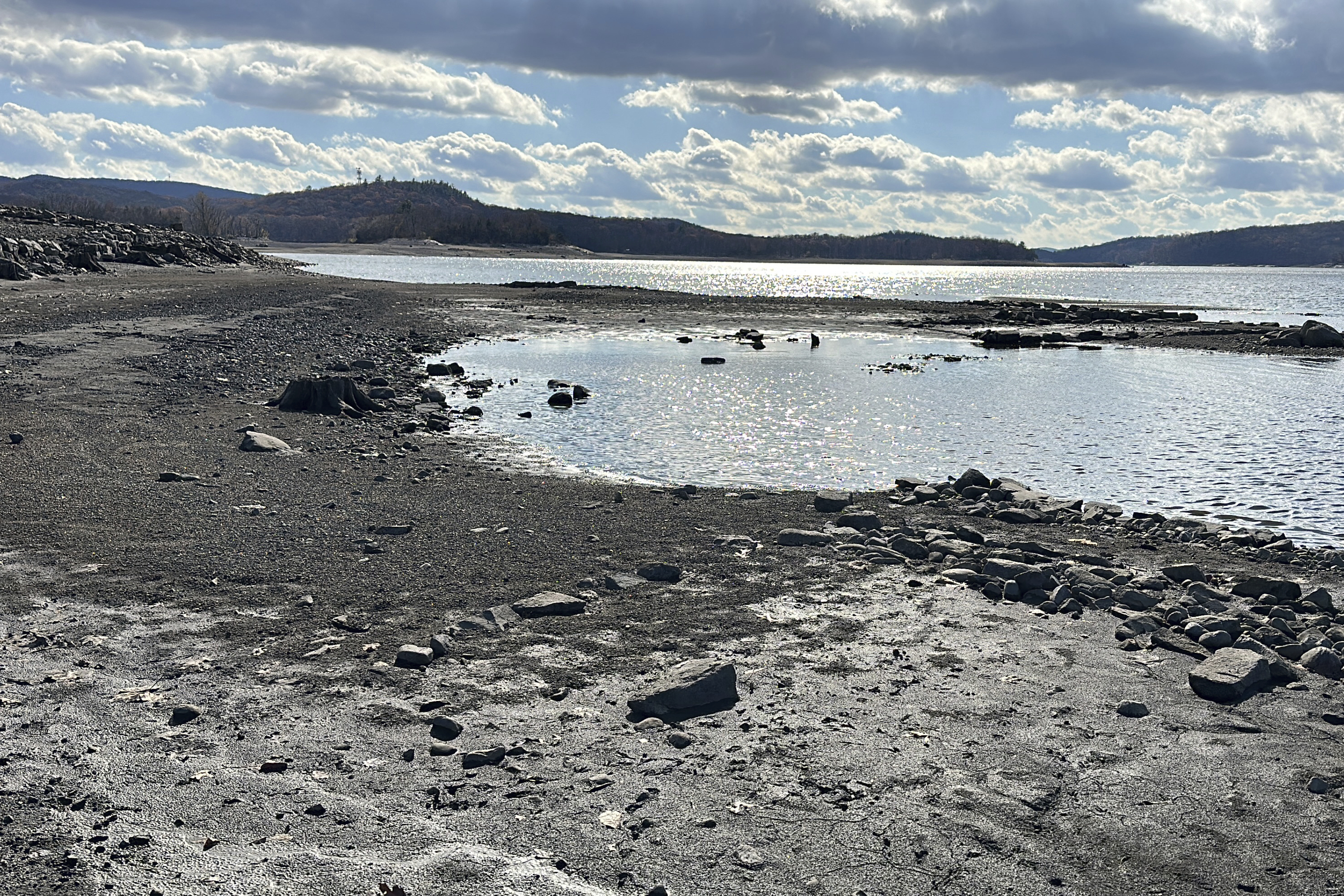What to Know
- The drought declaration by New Jersey Gov. Phil Murphy asked people to take voluntary conservation steps, like shorter showers, turning the faucet off while brushing teeth, and waiting until the dishwasher is full to run it. But it stopped short of mandatory water usage restrictions, which would be included in the event of a drought emergency, the highest alert the government can impose.
- New Jersey is not yet at the point where communities are in danger of running out of water for drinking or fighting fires. And the state wants to prevent things from reaching that point.
- The dry weather has brought a spate of brush and woodland fires to a part of the country that rarely has to deal with them on this level.
New Jersey's governor declared a drought warning. Black Hawk helicopters scooped water from a lake to dump on a burning forest in New York state. A park in Manhattan caught fire. And authorities in two states revealed criminal charges Wednesday against people accused of setting some of the wildfires that have plagued the northeast U.S. in recent weeks.
The actions came as conditions in some northeast states are the driest they've been in nearly 120 years as numerous wildfires continue to burn in places that haven't seen significant rain since August. Meanwhile, dry conditions from coast to coast were contributing to the spread of wildfires, particularly in Southern California.
The drought declaration by New Jersey Gov. Phil Murphy asked people to take voluntary conservation steps, like shorter showers, turning the faucet off while brushing teeth, and waiting until the dishwasher is full to run it. But it stopped short of mandatory water usage restrictions, which would be included in the event of a drought emergency, the highest alert the government can impose.
Get Tri-state area news delivered to your inbox. Sign up for NBC New York's News Headlines newsletter.
New Jersey is not yet at the point where communities are in danger of running out of water for drinking or fighting fires. And the state wants to prevent things from reaching that point.
“Please take this seriously,” Murphy said. “We have a very dry winter ahead of us.”
The dry weather has brought a spate of brush and woodland fires to a part of the country that rarely has to deal with them on this level.
Firefighting crews continued efforts to contain a wildfire in a woodland on the New Jersey-New York border that has burned around 7.8 square miles (20 square kilometers) in the two states.
No homes have been damaged, but Greg McLaughlin, an administrator with the New Jersey Forest Fire Service, said rugged hill terrain, coupled with few road access points, were making it difficult to fight the blaze from the ground. Water-dropping helicopters were being used in both states. And firefighters in New York took advantage of changing wind directions Wednesday by starting a controlled line of fires to burn away underbrush and leaves that could serve as fuel.
Around 30 miles (50 kilometers) away in New York City, a brush fire broke out in a park on the northern tip of Manhattan, sending smoke billowing across the Big Apple. The city’s fire department has responded to a record number of brush fires over the past two weeks.
“Due to a significant lack of rainfall, the threat of fast spreading brush fires fueled by dry vegetation and windy conditions pose a real threat to our members and our city,” Fire Commissioner Robert S. Tucker said in a statement.
Late Wednesday, police in the Philadelphia suburb of Evesham Township said they had charged a juvenile with deliberately setting an Oct. 30 fire that burned less than a tenth of a square mile. The youth, whose age was not released, was arrested Nov. 7 and taken to a juvenile detention center.
On New York's Long Island, a 20-year-old volunteer firefighter was charged with intentionally setting a brush fire Tuesday that wound up damaging a parked car, the Suffolk County Police Department said in a news release.
Dry conditions from coast to coast were contributing to the spread of wildfires.
Across the country, California made good progress against a major wildfire in Ventura County, northwest of Los Angeles, that broke out a week ago and quickly exploded in size because of dry Santa Ana winds. The Mountain fire was 60% contained on Wednesday.
The 32-square-mile (83-square-kilometer) fire forced thousands of residents to flee and has destroyed more than 215 structures, most of them houses, and damaged at least 210.
The fires in the Northeast haven't caused major evacuations, but a Connecticut firefighter died battling a wildfire last month and the blaze on the New York-New Jersey border claimed the life of an 18-year-old New York state parks employee who was assisting firefighters last weekend.
Dry conditions in the northeast U.S. are a growing concern, not only for firefighting efforts but for the continued availability of drinking water.
Two major reservoirs in New Jersey were at 51% and 45% of capacity on Wednesday, enough to keep the taps flowing, but low enough to cause concern for what might happen with additional weeks or months of low rainfall. One river that is a supplemental source of drinking water was at 14% of normal.
September and October were the driest two-month period ever recorded in New Jersey. Since August, the state has received 2 inches (5 cm) of rain when it should have gotten a foot (0.3 meters). No significant rainfall was in the foreseeable forecast, officials said.
New York City issued a drought watch last week. Mayor Eric Adams mayor urged residents to take shorter showers, fix dripping faucets and otherwise conserve water.
Just 0.01 inches (0.02 centimeters) of rain fell last month on the city’s Central Park, where October normally brings about 4.4 inches (11.2 centimeters) of precipitation. New York says it was the driest October in over 150 years.
Massachusetts declared a drought Tuesday after more than a month of decreased rainfall.
The ground is also bone-dry, McLaughlin added. This makes wildfires even more dangerous in that they can burn downward through dry soil and root systems, and endure for months.
On a ground dryness scale in which 800 is the highest possible score, New Jersey is at 748, meaning that the soil is dry almost 8 inches (20 centimeters) below the surface. That level had never before been reached, McLaughlin said.
A wildfire that broke out July 4 in New Jersey's Wharton State Forest by someone using illegal fireworks has long been considered contained. But it has been smoldering underground for four months and could reignite above ground, McLaughlin said.
___
Associated Press writers Christopher Weber in Los Angeles and Kathy McCormack in Concord, New Hampshire contributed to this report.

